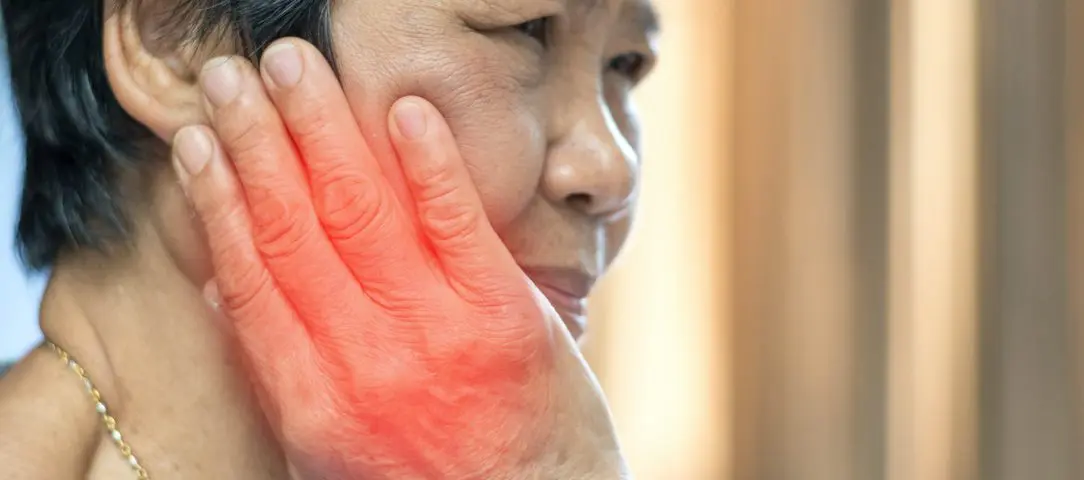National TMJ Awareness Month: Understanding Jaw Pain

How to Overcome Dental Anxiety and Phobia
November 12, 2020
The Best Thanksgiving Foods For Your Smile
November 25, 2020National TMJ Awareness Month: Understanding Jaw Pain

If you wake up with jaw pain from clenching your teeth at night, or if you have a hard time chewing certain foods, you could have issues with your temporomandibular joint (TMJ). TMJ disorders affect people of all ages and, in some cases, have no clear cause. November is National TMJ Awareness Month and our team at Mountain Aire Dentistry is here to help you learn how to protect the integrity of your jaw.
What is TMJ Disorder?
TMJ Disorder, formally known as temporomandibular joint disorder or TMD, is when you have bite issues associated with the jaw. This joint connects your lower jaw to your skull and it allows you to bite, chew, and eat like normal. However, when you have TMJ, you can experience pain when eating, pain in the jaw joints, and locked jaw.
Symptoms of TMJ
The signs and symptoms of TMJ vary from person-to-person. One person might experience joint pain on one side, another person might have difficulty opening and closing their mouth altogether. While everyone can have different symptoms, common signs of TMJ can include:
- Pain or tenderness of the jaw
- Joint pain in one or both of the jaw joints
- Aching pain in and around your ear
- Difficulty or pain while chewing
- Aching facial pain
- Locking of the joint, making it difficult to open and close your mouth
- Clicking sound when you open your mouth
Most patients will experience one or more of these TMJ symptoms, and it can make doing simple tasks like talking or eating suddenly hard to do.
Risk Factors of Developing TMJ
There is no clear cause for why people develop TMJ disorder. While some dentists believe symptoms are caused by the jaw muscles, other issues can be caused by the joint itself. Injury to the jaw or muscles of the head and neck can cause TMJ to develop. Further, other risk factors for developing it include:
- Grinding or clenching your teeth, which puts a lot of pressure on the joint
- Movement of the soft cushion or disc between the ball and socket of the joint
- Arthritis in the joint
- Stress, which can cause you to tight facial and jaw muscles and clench your teeth
TMJ Treatment Options
If you suffer from TMJ pain, you do have treatment options that can help alleviate your symptoms. Here are the most common treatment options for TMJ:
Nightguard
At Mountain Aire Dentistry, our top choice for treating those with TMJ pain is to custom fit a nightguard to protect your teeth while you sleep. Grinding your teeth can be a sign of feeling stressed or anxious, however, it can also be a result of misaligned teeth, irritation, or even allergies. Our dentist, Dr. Chris Bockrath, will examine your mouth and look for signs of teeth grinding. If needed, a nightguard will be prescribed to help prevent further oral damage, headaches, jaw sensitivity, and TMJ pain. Getting a custom-made mouthguard means that it will fit your teeth perfectly, so it won’t move around while you sleep. This is the best option for your oral health.
Manage stress
Jaw pain can often be caused due to anxiety and stress, though that’s not the case for everyone. If this is what is contributing to your jaw pain, learning how to best manage your stress will help protect your mental and oral health at once. Further, when stressed, we can begin unhealthy eating habits which increases our risk for additional oral health problems, like cavities and gum disease. If you want to better manage your stress, try these tips:
- Journaling or meditation
- 30 minutes of exercise a day
- Eating healthy, well-balanced meals
- Time management
- Sleeping 8 hours a night
Additionally, if you are having a hard time managing stress on your own, we recommend seeking help out from a loved one or a therapist to help you better understand why you are anxious and stressed. Studies have shown that stress is a significant factor in TMJ among people of all ages, ranging from students to adults. Learning how to manage it now will help your pain today, and protect you from further oral pain in the future if stress is the cause.
Make an Appointment with Mountain Aire Dentistry
If you are having jaw pain and think it might be due to TMJ, make an appointment to come see Dr. Bockrath here at Mountain Aire Dentistry. Dr. Bockrath will thoroughly look over your mouth and jaw to check for signs of TMJ or other oral health problems that could be causing your uncomfortable pain. Call us now at (303)-731-7755 to make your appointment.
When you visit our Broomfield dental office, your smile is our top priority. Our Dentists invite you to experience the difference a warm and caring team can provide for you and your family. Enjoy a unique and comfortable dental experience designed to bring a healthier and happier smile back into your life. We invite you to call or visit our Broomfield dental office and discover the exceptional difference we offer to those we serve.










